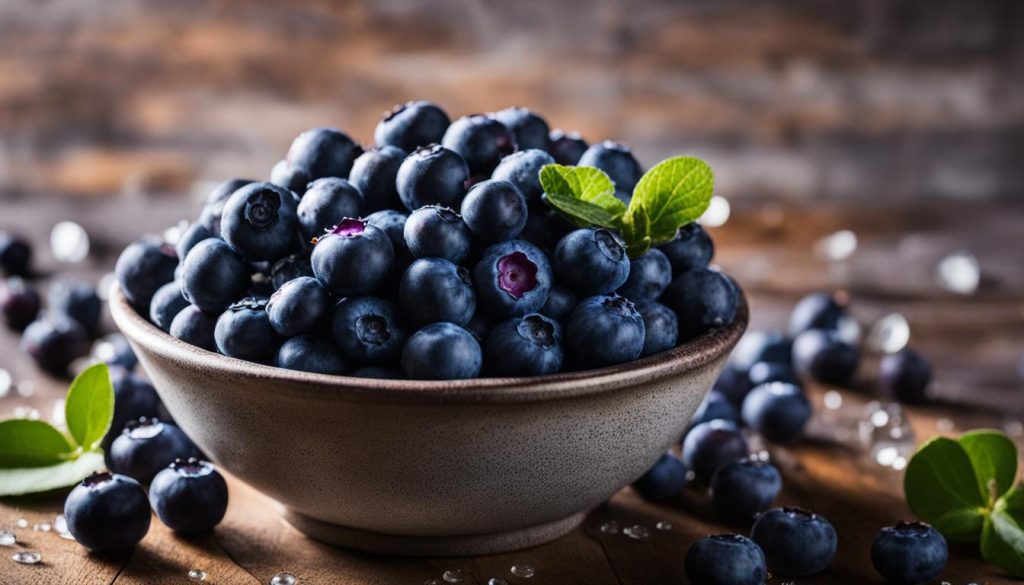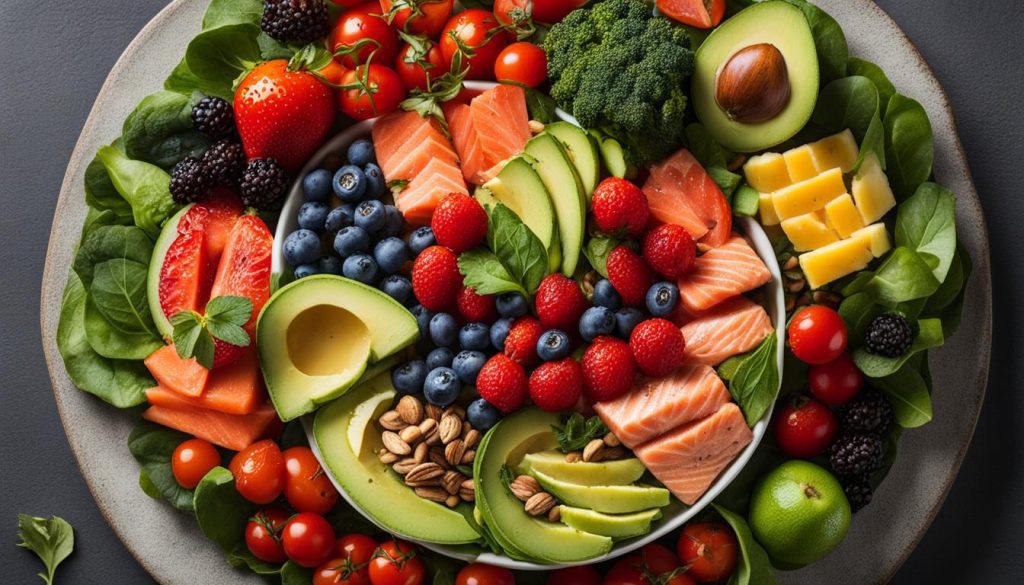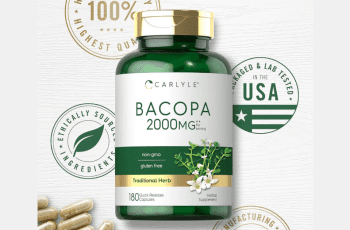Hello, I’m excited to share with you the top best brain development foods that can help boost your cognitive function, improve memory, and enhance concentration. These nutrient-rich foods are known for their brain-boosting properties and are an essential part of a brain-healthy diet. Incorporating these foods into your daily meals can help you achieve optimal brain development and support long-term brain health.
Let’s dive in and explore the top brain-boosting foods that can fuel your mind with the nutrients it needs to thrive.
Key Takeaways:
- Include fatty fish, such as salmon and trout, in your diet to benefit from omega-3 fatty acids that support brain health and cognitive function.
- Coffee, rich in caffeine and antioxidants, can enhance alertness, mood, and concentration. It may also reduce the risk of neurological diseases.
- Blueberries, along with other dark-colored berries, are packed with antioxidants that protect the brain and improve memory and cognitive processes.
- Turmeric, a spice containing curcumin, has anti-inflammatory and antioxidant properties that support brain health and may alleviate depression.
- Broccoli, a brain-boosting veggie, is rich in antioxidants and vitamin K, which play a crucial role in brain cell formation and protection.
Fatty Fish: An Omega-3 Powerhouse
Fatty fish, such as salmon, trout, and sardines, are rich sources of omega-3 fatty acids. These essential fats are crucial for brain health as they contribute to the development and functioning of brain and nerve cells.
Omega-3 fatty acids also play a role in learning, memory, and protecting against age-related cognitive decline and Alzheimer’s disease. Research suggests that regular consumption of fatty fish is associated with increased gray matter in the brain, which is responsible for decision-making, memory, and emotion.
To reap the brain-boosting benefits of fatty fish, aim to include them in your diet at least twice a week. You can enjoy grilled or baked fish dishes, add them to salads, or incorporate them into tasty fish tacos. Including these omega-3 powerhouses in your meals can help support optimal brain health and promote cognitive function. So let’s dive into delicious recipes that feature fatty fish!
Coffee: A Stimulant for Brain Performance
Coffee, a beloved beverage enjoyed by millions around the world, offers more than just a delicious pick-me-up in the morning. It also possesses several properties that can benefit brain health and performance. Let’s dive into the key reasons why coffee is a stimulating choice for optimizing cognitive function.
Caffeine: The Wake-Up Call for Alertness
One of the primary components of coffee is caffeine. Caffeine acts as a stimulant by blocking the effects of adenosine, a neurotransmitter that promotes sleepiness. This blockade leads to increased alertness and a reduction in drowsiness, allowing individuals to feel more awake and focused.
Antioxidant Power for Brain Health
In addition to caffeine, coffee contains a variety of antioxidants that can have positive effects on brain health. Antioxidants help protect the body against free radicals, unstable molecules that can cause cellular damage. By reducing oxidative stress, these antioxidants contribute to overall brain well-being.
Mood Enhancement and Improved Concentration
Many people turn to coffee for its ability to enhance mood and improve concentration. Caffeine stimulates the central nervous system, promoting the release of neurotransmitters like dopamine and norepinephrine. These neurotransmitters play a role in mood regulation and can promote feelings of happiness and well-being. Additionally, caffeine can improve concentration and focus, making it an ideal beverage for those needing to stay sharp and attentive.
Reduced Risk of Neurological Diseases
Emerging research suggests that regular coffee consumption may have a protective effect against neurological diseases such as Parkinson’s and Alzheimer’s. The high concentration of antioxidants in coffee may help reduce inflammation and oxidative stress, which are key contributors to the development of these diseases. Although more research is needed, current evidence indicates that coffee could be a valuable addition to a brain-healthy lifestyle.
So, the next time you enjoy a cup of coffee, savor the fact that it’s not only a delightful indulgence but also a potential ally for brain performance and well-being. With its caffeine kick, antioxidant richness, mood-enhancing properties, and potential neuroprotective effects, coffee certainly deserves a place in your daily routine.
Blueberries: Antioxidant-Rich Brain Boosters
When it comes to brain health, blueberries are a delicious and powerful ally. These small berries, along with other dark-colored berries, are packed with antioxidants known as anthocyanins. These antioxidants not only give blueberries their vibrant color but also provide a range of brain-boosting benefits.
One of the key benefits of blueberries is their anti-inflammatory properties. Inflammation in the brain can contribute to brain aging and the development of neurodegenerative diseases, such as Alzheimer’s and Parkinson’s. The anthocyanins in blueberries help reduce inflammation and protect brain cells from damage, promoting long-term brain health.
Additionally, blueberries have been shown to enhance communication between brain cells, leading to improved memory and cognitive processes. Studies have suggested that regular consumption of blueberries may boost memory and focus, making them a valuable addition to any brain-healthy diet.
Incorporating blueberries into your daily routine is easy. You can enjoy them as a snack, add them to your morning cereal or yogurt, or blend them into a refreshing smoothie. The possibilities are endless, and the benefits to your brain are significant.
So, why not make blueberries a regular part of your diet and give your brain a delicious and nutritious treat?

Turmeric: A Spice for Brain Health
Turmeric, a vibrant yellow spice commonly used in Indian cuisine, is not only delicious but also offers numerous health benefits, including being beneficial for brain health. The key compound in turmeric responsible for its medicinal properties is curcumin.
Curcumin is known for its potent anti-inflammatory and antioxidant properties, making it an excellent addition to your diet for overall well-being. When it comes to brain health, curcumin has been found to have several positive effects.
Firstly, curcumin can cross the blood-brain barrier, allowing it to directly interact with brain cells. This interaction may help protect brain cells from inflammation and oxidative stress, which are associated with cognitive decline and neurodegenerative diseases.
Studies have suggested that curcumin may also have a positive impact on memory and cognitive function. It has been shown to promote the growth of new brain cells and enhance the production of brain-derived neurotrophic factor (BDNF), a protein that supports the survival and growth of neurons.
In addition to its potential cognitive benefits, curcumin in turmeric may also play a role in improving mood and alleviating symptoms of depression. Some research suggests that curcumin may have antidepressant effects by modulating neurotransmitters and reducing inflammation in the brain.
While adding turmeric to your meals can be a flavorful way to incorporate it into your diet, it’s important to note that the curcumin content in turmeric is relatively low. To obtain higher concentrations of curcumin, you may consider taking curcumin supplements under the guidance of a healthcare professional.
Curcumin supplements can provide more significant amounts of curcumin and may be more effective in achieving the desired brain health benefits. It’s important to consult with a healthcare professional to determine the appropriate dosage and ensure the supplements are of high quality.
So, whether you choose to add turmeric to your meals or opt for curcumin supplements, incorporating this spice into your routine may contribute to brain health, reduce inflammation, and support memory and cognition.
Broccoli: A Brain-Boosting Veggie
When it comes to brain health, broccoli might not be the first food that comes to mind. However, this humble green vegetable is a powerhouse when it comes to boosting brain function.
Broccoli is rich in antioxidants, which help protect brain cells from oxidative stress and damage. These antioxidants also have anti-inflammatory properties, reducing inflammation in the brain and promoting overall brain health.
One of the key nutrients found in broccoli is vitamin K. Vitamin K plays a crucial role in brain cell formation and protection. Research has shown that higher vitamin K intake is associated with better memory and cognitive status, especially in older adults.
Including broccoli in your diet provides powerful brain-boosting benefits and promotes brain protection. So, whether you enjoy it steamed, roasted, or in a stir-fry, make sure to include this nutritional superstar in your meals.
Benefits of Broccoli:
- Antioxidants: Broccoli is packed with antioxidants that protect brain cells and reduce oxidative stress.
- Anti-inflammatory: The anti-inflammatory properties of broccoli help reduce inflammation in the brain.
- Vitamin K: Broccoli is rich in vitamin K, which supports brain cell formation and protection.
- Brain Protection: Including broccoli in your diet promotes brain health and protects brain cells from damage.
So, the next time you’re at the grocery store, don’t forget to pick up some broccoli and give your brain the boost it deserves!
Pumpkin Seeds: Micronutrients for Brain Function
When it comes to nourishing the brain, pumpkin seeds are a powerhouse of micronutrients that offer numerous benefits. Not only are they packed with antioxidants, which protect the body and brain from free-radical damage, but they also contain essential minerals like magnesium, iron, zinc, and copper.
Magnesium plays a vital role in nerve signaling, ensuring smooth communication between brain cells. Iron is essential for oxygenation and brain development, while zinc and copper contribute to optimal cognitive function. These micronutrients work together to support overall brain health.
By incorporating pumpkin seeds into your diet, you can provide your brain with these beneficial micronutrients. Add them to salads, sprinkle them on yogurt, or enjoy them as a snack. Including pumpkin seeds in your daily routine is a simple and delicious way to promote brain function and support your cognitive well-being.
Dark Chocolate: Indulgence with Brain Benefits
When it comes to satisfying your sweet tooth while also boosting your brain health, dark chocolate is the perfect indulgence. Dark chocolate and cocoa powder are packed with flavonoids, caffeine, and antioxidants, all of which have impressive brain-boosting properties.
Flavonoids, a type of antioxidant found in dark chocolate, have been shown to enhance memory and cognitive function. These powerful compounds promote healthy blood flow to the brain, improving its overall function. So, the next time you need an extra mental boost, reach for a piece of dark chocolate.
Caffeine, another component of dark chocolate, can improve alertness and mood. It stimulates the central nervous system, giving you a natural energy boost and increasing your focus and concentration.
But that’s not all – regular consumption of dark chocolate has been associated with better performance in mental tasks and increased positive feelings. So, indulge in a small piece of dark chocolate every day to reap these brain benefits.
When selecting dark chocolate, opt for varieties with a high cocoa content. The higher the cocoa content, the more flavonoids and antioxidants it contains, maximizing its brain-boosting potential. Look for dark chocolate with at least 70% cocoa to ensure you’re getting the greatest benefits.
Dark chocolate is not only a delicious treat but also a brain-healthy choice. Incorporating dark chocolate into your diet can enhance your memory, improve your mood, and boost your overall brain function. So, go ahead and savor a piece of dark chocolate guilt-free, knowing that you’re nourishing your brain in the process.
Nuts: Nutritional Powerhouses for the Brain
When it comes to nourishing the brain, nuts are an excellent choice. They offer a wide range of benefits that support both heart health and cognitive function. Regular consumption of nuts has been linked to a reduced risk of cognitive decline and enhanced memory.
Nuts are rich in healthy fats, antioxidants, and vitamin E, all of which play a significant role in promoting optimal brain function. These nutritional powerhouses provide a perfect combination of nutrients that support brain health.
Among all the nuts, walnuts deserve special mention. They are an exceptional source of alpha-linolenic acid, an omega-3 fatty acid that reduces inflammation and oxidative stress in the brain. This makes walnuts particularly beneficial for brain health.
Adding nuts to your daily diet can have a profound impact on both your heart and brain health. So, don’t hesitate to include a variety of nuts, such as almonds, cashews, and pecans, in your meals and snacks to reap their incredible benefits.
Brain-Boosting Benefits of the MIND Diet
The MIND diet is a powerful combination of the Mediterranean and DASH diets, specifically designed to prioritize brain health and reduce the risk of Alzheimer’s disease and dementia. By incorporating brain-healthy foods into your daily meals, you can support optimal brain function and cognitive well-being.
Many of the foods highlighted in this article, such as leafy greens, berries, and nuts, are key components of the MIND diet. These foods are rich in essential nutrients and antioxidants that nourish the brain and protect against cognitive decline.
Followers of the MIND diet are encouraged to consume plenty of leafy green vegetables, such as spinach and kale, as they are packed with brain-boosting nutrients like vitamins A, C, and K. Berries, such as blueberries and strawberries, are also highly recommended due to their high antioxidant content, which supports brain health.

In addition to leafy greens and berries, the MIND diet emphasizes the consumption of other brain-healthy foods like nuts, fish, whole grains, and olive oil. These foods provide an array of nutrients, including omega-3 fatty acids, vitamin E, and healthy fats, all of which contribute to optimal brain function and protection against cognitive decline.
It’s important to note that the MIND diet not only focuses on what you eat but also on other lifestyle factors that can impact brain health. Getting regular sleep, managing stress, and engaging in mental stimulation activities are all encouraged to complement the dietary approach.
By adopting the brain-boosting MIND diet and incorporating other healthy habits, you can take a proactive approach to promote long-term brain health, reduce the risk of Alzheimer’s disease and dementia, and enhance your overall cognitive function.
Conclusion
Optimizing brain health, enhancing cognitive function, and improving memory and concentration can be achieved by consuming a diet rich in brain development foods. Incorporating nutrient-rich superfoods like fatty fish, coffee, blueberries, turmeric, broccoli, pumpkin seeds, dark chocolate, and nuts into your daily meals can have significant benefits for brain health. Additionally, following the principles of the MIND diet, which emphasizes brain-healthy foods, can further promote long-term brain health.
By including fatty fish in your diet, you can benefit from the omega-3 fatty acids that support brain development and function. Consuming coffee, in moderation, with its caffeine and antioxidants, can enhance alertness, mood, and concentration. The antioxidants found in blueberries can protect against brain aging and neurodegenerative diseases while improving memory and cognitive processes.
Turmeric, rich in curcumin, can reduce inflammation, boost antioxidant activity, and facilitate the growth of new brain cells. Broccoli, packed with antioxidants and vitamin K, promotes brain cell formation and protection. Pumpkin seeds provide essential micronutrients like magnesium, iron, zinc, and copper, essential for brain function.
Dark chocolate, with its flavonoids and caffeine, can enhance memory, mood, and cognitive function. Nuts, particularly walnuts, with their healthy fats, antioxidants, and vitamin E, support brain health and memory. Following the MIND diet, which includes these brain development foods, along with other lifestyle factors, can further optimize brain power and promote cognitive function in the long run.
FAQ
What are the best brain development foods?
The best brain development foods include fatty fish, coffee, blueberries, turmeric, broccoli, pumpkin seeds, dark chocolate, nuts, and following the principles of the MIND diet.
How do fatty fish contribute to brain health?
Fatty fish, such as salmon, trout, and sardines, are rich sources of omega-3 fatty acids. These essential fats are crucial for brain health as they contribute to the development and functioning of brain and nerve cells.
What are the benefits of coffee for brain performance?
Coffee contains caffeine and antioxidants that can have positive effects on brain health. Caffeine blocks adenosine, a chemical that makes you feel sleepy, leading to increased alertness. It can also enhance mood and improve concentration.
How do blueberries boost brain health?
Blueberries, along with other dark-colored berries, contain antioxidants called anthocyanins. These antioxidants have anti-inflammatory properties and protect against brain aging and neurodegenerative diseases. They can also enhance communication between brain cells, leading to improved memory and cognitive processes.
What are the brain benefits of turmeric?
Turmeric contains an active compound called curcumin, which has strong anti-inflammatory and antioxidant properties. Curcumin can cross the blood-brain barrier and benefit brain cells. It may improve memory, alleviate depression, and promote the growth of new brain cells.
How does broccoli support brain health?
Broccoli is packed with antioxidants and compounds that have anti-inflammatory effects. It is rich in vitamin K, which plays a crucial role in brain cell formation and protection. Studies have linked higher vitamin K intake to better memory and cognitive status in older adults.
What are the brain-boosting benefits of pumpkin seeds?
Pumpkin seeds are a rich source of antioxidants that protect the body and brain from free-radical damage. They are also packed with micronutrients like magnesium, iron, zinc, and copper. These minerals are essential for brain function, including nerve signaling, brain development, and oxygenation.
How does dark chocolate enhance brain function?
Dark chocolate and cocoa powder contain flavonoids, caffeine, and antioxidants, all of which have brain-boosting properties. Flavonoids in chocolate enhance memory and cognitive function, while caffeine improves alertness and mood. Regular consumption of dark chocolate has been associated with better performance in mental tasks and increased positive feelings.
How do nuts support brain health?
Various nuts, such as walnuts, have been linked to improved heart health, which is closely tied to brain health. Regular consumption of nuts is associated with a lower risk of cognitive decline and enhanced memory. Nuts provide a combination of healthy fats, antioxidants, and vitamin E, all of which support brain function.
What is the MIND diet and its benefits for the brain?
The MIND diet, a combination of the Mediterranean and DASH diets, emphasizes brain-healthy foods to reduce the risk of Alzheimer’s disease and dementia. Many of the foods mentioned in this article, such as leafy greens, berries, and nuts, are also part of the MIND diet. Following this dietary approach, along with other lifestyle factors like regular sleep, managing stress, and mental stimulation, can promote optimal brain health and cognitive function.
How can a brain-healthy diet support brain health?
Consuming a diet rich in brain development foods can support brain health, enhance cognitive function, and improve memory and concentration. Including foods like fatty fish, coffee, blueberries, turmeric, broccoli, pumpkin seeds, dark chocolate, nuts, and following the principles of the MIND diet can have significant benefits for brain health.




